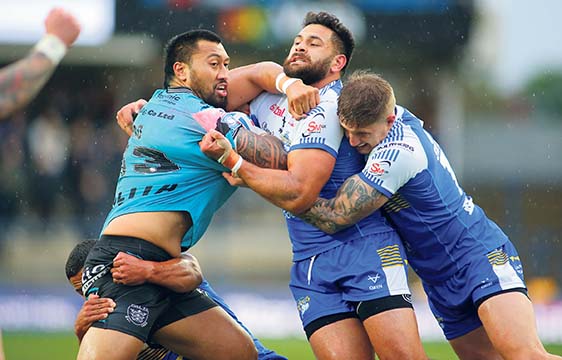 League Express editor MARTYN SADLER gives his views on the current Rugby League scene. This is his 'Talking Rugby League' column taken from this week's issue of League Express.
As I wasn't saying
If you write a weekly column on Rugby League, eventually you’ll write something that looks a little unwise in the light of subsequent
League Express editor MARTYN SADLER gives his views on the current Rugby League scene. This is his 'Talking Rugby League' column taken from this week's issue of League Express.
As I wasn't saying
If you write a weekly column on Rugby League, eventually you’ll write something that looks a little unwise in the light of subsequent Talking Rugby League
 League Express editor MARTYN SADLER gives his views on the current Rugby League scene. This is his 'Talking Rugby League' column taken from this week's issue of League Express.
As I wasn't saying
If you write a weekly column on Rugby League, eventually you’ll write something that looks a little unwise in the light of subsequent
League Express editor MARTYN SADLER gives his views on the current Rugby League scene. This is his 'Talking Rugby League' column taken from this week's issue of League Express.
As I wasn't saying
If you write a weekly column on Rugby League, eventually you’ll write something that looks a little unwise in the light of subsequent 